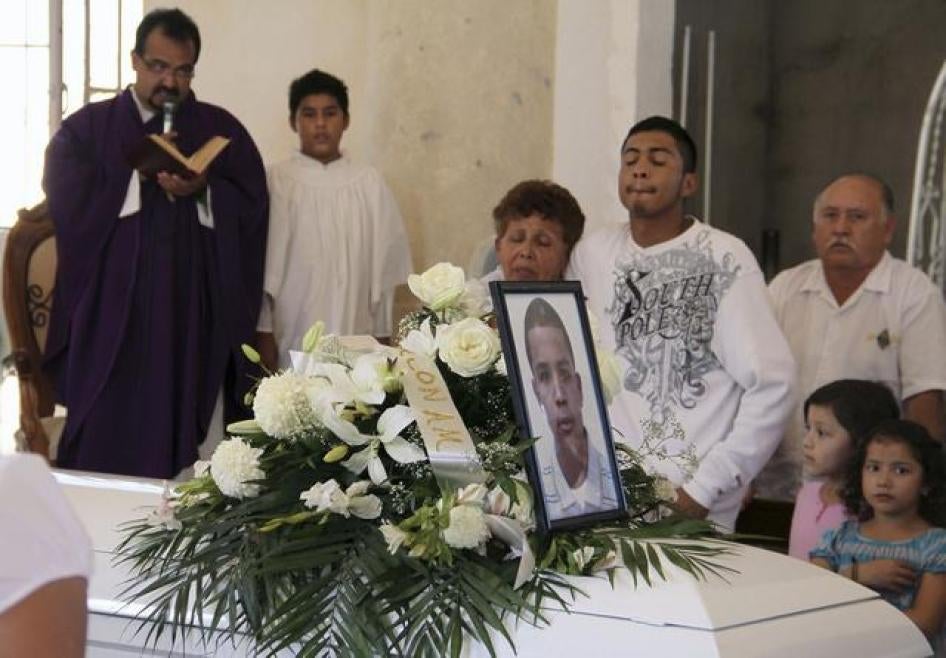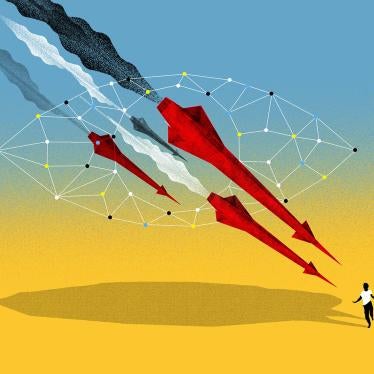(San Francisco) – A United States Border Patrol Agent who shot an unarmed Mexican child in the back across the border should not escape justice if the shooting was unlawful, Human Rights Watch said in a friend-of-the-court brief.
In the brief, filed in a federal appeals court on Friday, Human Rights Watch says international standards require law enforcement officers to use force only when it is necessary and proportionate. The law firm Constantine Cannon LLP served as counsel on the brief.
“On the facts in the complaint, this killing unambiguously violates international standards for the use of force by law enforcement officers,” said Sarah Poppy Alexander, an associate with Constantine Cannon. “An unarmed child standing on a public street would have posed no immediate threat to Agent Swartz, who was behind a border fence 40 to 50 feet above street level.”
Human Rights Watch filed the amicus brief in the case of Rodriguez v. Swartz, to support the claim of the mother of 16-year-old Jose Antonio Elena Rodriguez. A US Border Patrol agent, Lonnie Ray Swartz, shot the teenager approximately 10 times in the back in October 2012, killing him. Elena Rodriguez was standing near the border fence in Nogales, Mexico, and Agent Swartz shot from the US side of the border.
International human rights law obliges the United States to prevent, investigate and ensure accountability for violent cross-border abuses by US Border Patrol agents, Human Rights Watch said.
A lower court decided in July 2015 that the case for constitutional violations against Agent Swartz could move forward. Agent Swartz appealed, claiming that Elena Rodriguez was not entitled to the protections of the United States Constitution because he was a Mexican citizen standing in Mexico at the time he was shot.
“Borders aren’t zones of human rights exclusion or exception,” said Clara Long, a researcher in the US Program at Human Rights Watch. “US law should not allow violent abuses at its border to go unpunished.”
US border agencies have ignored violent incidents involving the likely unlawful use of force by its agents, Human Rights Watch said. A US government panel of experts recently found that Customs and Border Protection’s disciplinary system is inadequate and takes far too long to be an effective deterrent to misconduct.
“The US Border Patrol has a track record of not holding its agents responsible for violence along the border,” Long said. “That’s why this case so important since it may be the only plausible avenue for redress open to Elena Rodriguez’s family.”








